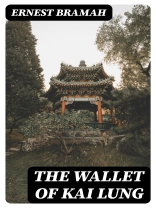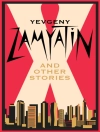In ’The Wallet of Kai Lung, ’ Ernest Bramah presents a captivating collection of interconnected stories that brilliantly juxtapose humor and philosophy within a fantastical setting resembling ancient China. Utilizing a distinctive narrative style characterized by whimsical language and clever wordplay, Bramah deftly explores themes of wit, moral conundrums, and the human condition through his protagonist Kai Lung, a wandering storyteller. The book features an intricate structure, reminiscent of traditional Chinese tales but infused with a contemporary twist, allowing readers to appreciate the timeless nature of its narratives while reveling in their imaginative flair. Ernest Bramah, a British writer known for his sharp wit and mastery of storytelling, crafted ’The Wallet of Kai Lung’ during the early 20th century, a period marked by a growing interest in Eastern philosophies and literary forms in Western culture. Bramah’s experiences in the British expatriate community and an affinity for the exotic themes of the East undoubtedly influenced his portrayals of Kai Lung, imbuing the tales with a richness that invites exploration. His unique position as a cultural translator allowed him to infuse Western sensibilities into Eastern narratives, bridging two worlds in a playful manner. I highly recommend ’The Wallet of Kai Lung’ to readers who appreciate clever storytelling that challenges conventional morals while offering a delightful escape into a whimsical world. Bramah’s combination of humor and clever narrative structure makes this work not only a treasure of literary prowess but also an enriching experience that invites readers to reflect on the complexities of life.
Om författaren
Ernest Bramah, born Ernest Bramah Smith on March 20, 1868, in Manchester, England, was a prolific English author known for his inventiveness and varied literary range. Bramah delved into different genres, including science fiction, fantasy, and detective stories, but he is best acknowledged for ’The Wallet of Kai Lung’ (1900), which introduced readers to his enduring creation, the itinerant storyteller Kai Lung. This work set a precedent for the blend of fantastical narratives and mock-oriental tales that characterized his writing style. ’The Wallet of Kai Lung’ is a series of whimsical and intricate stories, teeming with clever aphorisms and paradoxes, which won him critical acclaim and a distinguished place in early 20th-century literature. Through Kai Lung, Bramah offered a unique narrative voice, blending archaic language with a comedic touch that both entertained and subtly critiqued social norms. Bramah’s work is marked by his wit, his fondness for the exotic, and his mastery of a pastiche of literary styles. Although eclipsed by his contemporaries in his time, modern re-evaluations of Bramah’s literature recognize the unique contributions he made to English letters. He passed away on June 27, 1942, leaving behind a legacy of literary innovation that continues to enchant new generations of readers.












